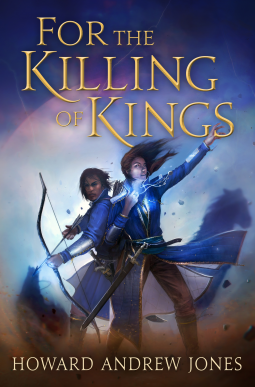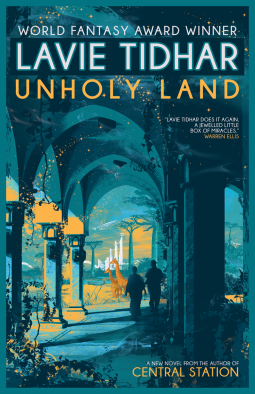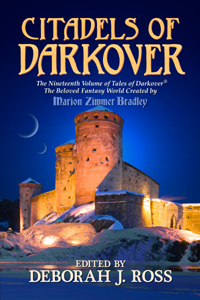Deborah J. Ross's Blog, page 66
May 22, 2019
Today's Moment of Art
Published on May 22, 2019 01:00
BayCon 2019 Schedule
Here's my schedule for BayCon 2019
 Besides these events, I'll be around on Saturday the 25th, so please say hello!How To Write A Heroine26 May 2019, Sunday 14:30 - 16:00, Connect 5 (San Mateo Marriott)
Besides these events, I'll be around on Saturday the 25th, so please say hello!How To Write A Heroine26 May 2019, Sunday 14:30 - 16:00, Connect 5 (San Mateo Marriott)
Tips for writing strong female protagonists in sci fi/fantasy (or YA sci fi/fantasy).
Marjory Kaptanoglu (M), Ms. Jennifer L. Carson (Freelance), Deborah J. RossUrban Legends in Science27 May 2019, Monday 11:30 - 13:00, Connect 3 (San Mateo Marriott)
Salt causes high blood pressure. We only use 10% of our brains. Vaccines cause autism. Where does this stuff come from, and why do these fallacies persist? Scientists and science-knowledgeable fans dissect some of the crazy things we hear.
J.L. Doty (M), Deborah J. Ross, Kathleen Bartholomew (Self-employed)By Any Other Name27 May 2019, Monday 13:00 - 14:30, Synergy 5 (San Mateo Marriott)
Are character and place names important to a reader's response to your story? What about titles?
Ms. Maya Kaathryn Bohnhoff (Book View Cafe) (M), Heather Rose Jones, Deborah J. Ross

 Besides these events, I'll be around on Saturday the 25th, so please say hello!How To Write A Heroine26 May 2019, Sunday 14:30 - 16:00, Connect 5 (San Mateo Marriott)
Besides these events, I'll be around on Saturday the 25th, so please say hello!How To Write A Heroine26 May 2019, Sunday 14:30 - 16:00, Connect 5 (San Mateo Marriott)Tips for writing strong female protagonists in sci fi/fantasy (or YA sci fi/fantasy).
Marjory Kaptanoglu (M), Ms. Jennifer L. Carson (Freelance), Deborah J. RossUrban Legends in Science27 May 2019, Monday 11:30 - 13:00, Connect 3 (San Mateo Marriott)
Salt causes high blood pressure. We only use 10% of our brains. Vaccines cause autism. Where does this stuff come from, and why do these fallacies persist? Scientists and science-knowledgeable fans dissect some of the crazy things we hear.
J.L. Doty (M), Deborah J. Ross, Kathleen Bartholomew (Self-employed)By Any Other Name27 May 2019, Monday 13:00 - 14:30, Synergy 5 (San Mateo Marriott)
Are character and place names important to a reader's response to your story? What about titles?
Ms. Maya Kaathryn Bohnhoff (Book View Cafe) (M), Heather Rose Jones, Deborah J. Ross

Published on May 22, 2019 01:00
May 20, 2019
Memories of Vonda
 My friend and fellow writer, Vonda N. McIntyre, died last month. There were a bunch of obituaries, including mainstream papers like
The New York Times
and The Guardian, and many genre publications. Her friends have been gathering memories of her as well. It took me a while to pull together my thoughts, but here they are:
My friend and fellow writer, Vonda N. McIntyre, died last month. There were a bunch of obituaries, including mainstream papers like
The New York Times
and The Guardian, and many genre publications. Her friends have been gathering memories of her as well. It took me a while to pull together my thoughts, but here they are:I have been thinking what I could add to the wonderful stories about Vonda. She was one of the many amazing women writers who inspired my early career, but I didn't meet her in person until 1994, when she came to Los Angeles (where I lived then) for a fellowship to the Chesterfield Writer’s Film Project workshop. How could I resist the chance to meet her? I wrote to her, introduced myself, and received a warm reply. I picked her up and brought her home to my family. I remember her relaxing, being treated as a normal but quite fascinating person, away from the artificial, competitive environment of Hollywood. We got together a number of times during her sojourn, talking a little about writing but mostly life and food and the weather, just enjoying each other's company. I remember her returning the favor when I was in Seattle for a convention and she took me out to the best salmon dinner I've had in my life. We found a lot to laugh about. Then when I joined Book View Cafe she was my mentor as well, endlessly patient and encouraging. (Plus I got to brag that she formatted my ebooks, how amazing!)
One particular discussion stands out from her time in LA. The topic had gotten on to media tie-ins and shared worlds (she'd written Star Trek and Star Wars novels, and I had a story in a SW anthology and Darkover anthologies -- and I have since gone on to novel-length works in that world). I asked her if she regretted taking time from her original writing and she said that the tie-ins made it financially possible to work on other, less commercial projects. The way she discussed her work made it clear that she did her best, no matter what the story, how her imagination and sensibilities and values enriched everything she produced. That has stayed with me over the years as I've wrestled with my insane expectations of myself and my work: Write the best you can with whatever life gives you. The rest will take care of itself.
Ironically, the last book Vonda was going to format for me was a collection of my Darkover short fiction. Here's the last email she sent me, typically generous, loving Vonda:
Hi Deborah,
Body is sort of setting the boundaries.
I sure wish I could finish the book for you.
So of course the book is dedicated to her.Hugs,V.
Miss you much, my dear friend.Deborah

Published on May 20, 2019 01:00
May 17, 2019
Short Book Reviews: Great World-Building Shows Promise
For the Killing of Kings, by Howard Andrew Jones (St. Martin’s)

The best thing about this book is the world-building, which the author has clearly put a great deal of care and thought into, at least for the central realm and its main characters. Especially in the beginning, it reminded me of Sherwood Smith’s wonderful Inda books with the sense of long-established institutions, complex relationships, and history. The opening sequence, with the discovery that a legendary sword is missing and a well-constructed forgery substituted in its place of honor, engaged me right away.
Gradually I became less enchanted with the story. Too many characters, especially the antagonists, did and said things that were ill-thought-out or downright incompetent. Denevan, who has risen to a position of power and authority as chief of the ultra-elite Alternen, has the emotional maturity of an adolescent, still nursing old petty jealousies. I much prefer villains on a more majestic scale, capable of greatness. Neither Denevan nor Mazakan, king of the invading Naor, fits the bill.
My favorite character was the brilliant, if somewhat distracted mage, Varama, who’s always a step ahead of everyone else but gets lost as other, less intelligent characters end up bashing their way through the violent climax. For me this was a major disappointment. Varama was akin to this world’s Sherlock Holmes, putting together otherwise-overlooked details to perceive patterns. I’m sure she would have come up with an elegant solution to Denevan’s power play and the invasion of the Naor. Speaking of the Naor, their only purpose in life seems to be to invade, pillage, and so forth, in order to make the central characters look noble. I never discerned any reasonfor their belligerence. In fact, it seemed at the opening that a mutually beneficial peace might lead to some interesting politics, jockeying for trade advantages and so forth. The only explanation seems to be because evil invaders (hint: “piles of skulls” = seriously nasty folks) are required for a big battle or three.
I wish the author had put as much thought into the causes of war and its creative resolution, and valuing science/intelligence over military prowess, as he did into the rest of the world-building. Such a rich world and array of characters might have served up a truly memorable story, but this one is only pretty good.

Published on May 17, 2019 01:00
May 16, 2019
Story Sale!
I've sold a novelette, "Many Teeth," to Sword and Sorceress 34. Since this will be the final volume in that series, I considered what I've always wanted to put into a story involving swordswomen and/or sorceresses. So many elements and permutations have already been done many times, but I've always wanted to stick a dinosaur into a sword and sorcery story. (Maybe that's been done many times, but not by me.) I remembered an image that came to me while watching the first Jurassic Park movie, as the humans are menaced from several directions by velociraptors (never mind that the real velociraptors were turkey-sized). I thought, "I wonder what a skilled swordswoman wielding a katana could do in that situation."
I jokingly called this story, "Red Sonja in The Land That Time Forgot." Its real title during writing was, "The Rescue of One-Eyed Wanda, or Many Teeth." That got shortened.
I should add that when my husband, who is often my first reader, finished, he wanted more-more-more. So perhaps, in my copious spare time, I will enlarge it into a novel...

I jokingly called this story, "Red Sonja in The Land That Time Forgot." Its real title during writing was, "The Rescue of One-Eyed Wanda, or Many Teeth." That got shortened.
I should add that when my husband, who is often my first reader, finished, he wanted more-more-more. So perhaps, in my copious spare time, I will enlarge it into a novel...

Published on May 16, 2019 11:24
May 14, 2019
New Story on Curious Fictions
"Storm God," a short, fun story from Sword and Sorceress is now available free on Curious Fictions.

This was one of my first professional short story sales and a delight to write. Ideas for horrible things that might lay in wait for anyone foolish enough to cross a swamp just kept popping into my head. And of course, who could resist putting an iconic tale into a new setting?
A tidbit:
Dov made good time through the morning, keeping to the threadwork of game trails that laced the Marshes. She had no difficulty avoiding the patches of quicksand with their coats of light earth and certain, sucking death. The sun rose higher, pale through thickening clouds. Desolate though the swamp might appear, it teemed with subtle, carnivorous life, no place for the unwary.She glimpsed a werefox curled near some brierbushes. Its whimpering, pitched to lure a predator to its end, aroused her pity at first. It looked exactly like a small wounded animal as it regarded her with bright, pleading eyes, its poison sucker-pads carefully hidden beneath furry sides. She laughed at its pretentious vulnerability and went on her way.The whip-plants were another matter. She had just finished eating her midday meal, sitting on a patch of salt-grass and congratulating herself on the excellent time she had made. Descending from the hummock, her ankle turned on the slippery grass, and she stumbled into a tangle of branches. It took her a moment to realize the grip on her arms and hair was not accidental. By then she was firmly held.Dov lashed out at the bramble with a booted food.“You idiot plant, let go of me!” The pliant vines curled around her, tough and resilient, well beyond her strength to break. She felt a slight, irresistible pull toward the central trunk.“Of all the stupid –” she gasped. Just when things were going so well, to be eaten by a plant!

This was one of my first professional short story sales and a delight to write. Ideas for horrible things that might lay in wait for anyone foolish enough to cross a swamp just kept popping into my head. And of course, who could resist putting an iconic tale into a new setting?
A tidbit:
Dov made good time through the morning, keeping to the threadwork of game trails that laced the Marshes. She had no difficulty avoiding the patches of quicksand with their coats of light earth and certain, sucking death. The sun rose higher, pale through thickening clouds. Desolate though the swamp might appear, it teemed with subtle, carnivorous life, no place for the unwary.She glimpsed a werefox curled near some brierbushes. Its whimpering, pitched to lure a predator to its end, aroused her pity at first. It looked exactly like a small wounded animal as it regarded her with bright, pleading eyes, its poison sucker-pads carefully hidden beneath furry sides. She laughed at its pretentious vulnerability and went on her way.The whip-plants were another matter. She had just finished eating her midday meal, sitting on a patch of salt-grass and congratulating herself on the excellent time she had made. Descending from the hummock, her ankle turned on the slippery grass, and she stumbled into a tangle of branches. It took her a moment to realize the grip on her arms and hair was not accidental. By then she was firmly held.Dov lashed out at the bramble with a booted food.“You idiot plant, let go of me!” The pliant vines curled around her, tough and resilient, well beyond her strength to break. She felt a slight, irresistible pull toward the central trunk.“Of all the stupid –” she gasped. Just when things were going so well, to be eaten by a plant!

Published on May 14, 2019 01:00
May 13, 2019
Print Release: Ink Dance: Essays on the Writing Life
Ink Dance: Essays on the Writing Life
[image error]
This collection of my blog posts over a number of years ranges in topic from writing craft to daily rhythms and self-care to staying motivated over the long haul of a career. A number of readers asked for a print version so they could jot down their own notes. It's available now from Amazon, Barnes & Noble, and your local bookstore through Ingram (ISBN 978-1-61138-757-5)
To whet your appetite, here's an excerpt from the introduction by Mary Rosenblum, and table of contents:
[image error] Just You and a Blank PageGetting Started in WritingNegotiating with the Idea FairyWarm UpsOpen HereMore On Story BeginningsStructure, Shape, and InterestDo You Outline Your Novel? Should You?Dream A Little DreamIt’s Only FictionNot Just Another Funny Forehead: Creating Alien CharactersVillains, Evil, and OthernessRevenge and RetaliationFirst Person PerilsWhy Write Short?Why Write Long?Sexuality in FictionThe Magic NotebookFocusWrite It Again, SamMore Thoughts on RevisionCritiquing Vs. EditingStrategies for Dealing With Writer’s BlockOvercoming the Inertial HumpSam In Spades: Why Not to Revise
Career and Survival Queries, Synopses, Pitches and Other Uneasy FriendsPitches and Why I Should CareBook Promotion RehabilitationNon Obnoxious Book Promotion, Part 2Gate-Keeping in the World of EbooksStory And SelfStages in a Writer’s DevelopmentBlackberry WritingWhen A Story Isn’t ReadySeries as Career KillerHow Gossip Can Trash Your Writing CareerReviews: The Good, the Bad, and the IgnorableInner VoicesSurviving Dry SpellsThe Magic Phone CallLetting Go, Moving On
The Writer’s LifeWhere Do You Write?Writing Without ElectricityInterruptionsWhen Writing Friends Aren’tCreative JealousyEncountering Wannabee WritersThe Lady (and Honorary) Writers LunchMentoringExercise and the Older WriterListeningWhen Is It Enough?
Nourishing YourselfSurvival as a Writer (or Artist, or Musician)Defining Writing Success as PublishingWould You Write Anyway?Zen Yoga Writing PracticeNothing Creative is Ever Wasted'Tis the Season To Get CrazyPacingCommunity and SolitudeCross-Training for WritersOn Writing and HealingWriting FearsGoals vs. WishesSettling In Meditation and Writing

A cup of inspiration, a dash of understanding, a bouquet of wisdom for writers new and old. From the desk of writer and editor Deborah J. Ross comes a collection of warm, insightful essays on “the writing life” – from getting started, negotiating with the Idea Fairy and creating memorable characters, to writing queries, surviving bad reviews, dealing with life’s interruptions and creative jealousy, to nourishing yourself and your creative muse. With space for personal notes.
This collection of my blog posts over a number of years ranges in topic from writing craft to daily rhythms and self-care to staying motivated over the long haul of a career. A number of readers asked for a print version so they could jot down their own notes. It's available now from Amazon, Barnes & Noble, and your local bookstore through Ingram (ISBN 978-1-61138-757-5)
To whet your appetite, here's an excerpt from the introduction by Mary Rosenblum, and table of contents:
This collection of essays guides you through the craft and career of writing with all the useful information of a shelf full of ‘how to’ books, but offered with the warm personal energy of a conversation across the kitchen table.
From her advice on how to actually get started, her craft and career tips, to her really excellent counsel on how to survive writing in real life and still nourish yourself and your spirit, this collection offers an in depth look at what it means to be a writer.
Every day. All the time.
While Deborah’s career has been New York oriented, most of what she has to say works for today’s author going the small press or Indie route as well. She speaks of the things that helped her succeed or got in her way with a refreshing personal honesty that invites us to examine our own behaviors. There’s a lot here for any aspiring writer who takes his or her craft seriously. No matter what you write or how you publish.
Read it, learn, and enjoy! You’ll come away nourished.
[image error] Just You and a Blank PageGetting Started in WritingNegotiating with the Idea FairyWarm UpsOpen HereMore On Story BeginningsStructure, Shape, and InterestDo You Outline Your Novel? Should You?Dream A Little DreamIt’s Only FictionNot Just Another Funny Forehead: Creating Alien CharactersVillains, Evil, and OthernessRevenge and RetaliationFirst Person PerilsWhy Write Short?Why Write Long?Sexuality in FictionThe Magic NotebookFocusWrite It Again, SamMore Thoughts on RevisionCritiquing Vs. EditingStrategies for Dealing With Writer’s BlockOvercoming the Inertial HumpSam In Spades: Why Not to Revise
Career and Survival Queries, Synopses, Pitches and Other Uneasy FriendsPitches and Why I Should CareBook Promotion RehabilitationNon Obnoxious Book Promotion, Part 2Gate-Keeping in the World of EbooksStory And SelfStages in a Writer’s DevelopmentBlackberry WritingWhen A Story Isn’t ReadySeries as Career KillerHow Gossip Can Trash Your Writing CareerReviews: The Good, the Bad, and the IgnorableInner VoicesSurviving Dry SpellsThe Magic Phone CallLetting Go, Moving On
The Writer’s LifeWhere Do You Write?Writing Without ElectricityInterruptionsWhen Writing Friends Aren’tCreative JealousyEncountering Wannabee WritersThe Lady (and Honorary) Writers LunchMentoringExercise and the Older WriterListeningWhen Is It Enough?
Nourishing YourselfSurvival as a Writer (or Artist, or Musician)Defining Writing Success as PublishingWould You Write Anyway?Zen Yoga Writing PracticeNothing Creative is Ever Wasted'Tis the Season To Get CrazyPacingCommunity and SolitudeCross-Training for WritersOn Writing and HealingWriting FearsGoals vs. WishesSettling In Meditation and Writing

Published on May 13, 2019 11:21
May 10, 2019
Short Book Reviews: A Jewish Homeland in Kenya
 Unholy Land, by Lavie Tidhar (Tachyon)
Unholy Land, by Lavie Tidhar (Tachyon)I never quite settled into this highly praised novel. I really wanted to like it, but found myself reaching for something else to read. The review in Publisher’s Weekly said, “Fantasy Award winner Tidhar (Central Station) will leave readers’ heads spinning with this disorienting and gripping alternate history,” and I think that’s an accurate description of my experience. I could never tell which of many connected alternate worlds I was in, or sometimes which character’s point of view I was in.
On the positive side, I loved the premise: in another world, the Jewish people find a homeland in the early part of the 20th Century, not following the horror of the Holocaust. And not in the Middle East but in Africa, in Kenya. As in modern Israel, where Palestinians are exiled from the lands they have lived in for millennia, Africans are relegated to the other side of the (literal) wall and systematically disenfranchised. I appreciated the evocative parallels between this African Palestina and the modern American immigration debate or Israeli-Palestinian conflict.
Our guide to this world is pulp fiction writer Lior Tirosh, returning home (to Kenyan Palestina) from Germany. At first the story reads like a murder mystery, alternating Lior’s discovery of a body (and so forth) with the first-person narrative of a police officer. However, the initial mystery is quickly superseded by others, eventually centering on the breakdown of the barriers between alternate worlds. That’s a pretty tall order for one book, and I found the switching of worlds and viewpoints (third, first, and even second, which just knocked me out of the story every time) to be confusing rather than intriguing.
Others may find Unholy Land to be a brilliant tour de force, but for me it was frustrating to be repeatedly baffled and to be thrown out of the story line just when things were beginning to make sense.
The usual disclaimer: I received a review copy of this book, but no one bribed me to say anything about it. Although chocolates might be nice.

Published on May 10, 2019 01:00
May 7, 2019
Citadels of Darkover - Print Edition!
Citadels of Darkover has been officially released, which means the print edition is available here.
Reviews most welcome.


Reviews most welcome.


Published on May 07, 2019 01:00
May 6, 2019
Auntie Deborah’s Advice Column for Aspiring Writers
 Dear Auntie Deborah: How can I find a real publisher for my YA novel, instead of one of the many vanity or scam presses?
Dear Auntie Deborah: How can I find a real publisher for my YA novel, instead of one of the many vanity or scam presses?-- Tearful Wannabee
Dear Tearful: Do your research about publishers. Find out which accept unagented submissions. Check them out on Writer Beware or Predators & Editors!!Get an agent. Again, do your research on which agents are legitimate and represent your genre. (See above resources.) A decent agent will do the submissions for you, using their professional contacts, plus access to publishers that require an agent (which, today, is most of them).Hang out online with other YA authors and pick their brains, see who publishes them, so you can hear about newer publishers and agents who might be open to your type of material.Get support. Hobnob with other writers, particularly those at or a little beyond your career stage. Writing is such a lonely business at best, and we need to glomp together — even seasoned pros with decades of sales — for mutual encouragement. And gossip.Good luck!
Dear Auntie Deborah: I don’t think my book will ever be published. Was it all a waste of time?-- Loves2Write
Dear Loves2Write:
Dear Auntie Deborah: I keep wanting to revise as I write my first draft. I’ve been told this a terrible thing to do. I keep second-guessing myself when I do, and I’m afraid I’ll end up creatively paralyzed. Help! -- Second Thoughts
Dear Second, I think you’re halfway there in understanding why many find it important to plough through that draft so you can look at the whole thing when it’s time to revise. It’s tempting but (for many of us) deadly to halt forward progress and nitpick. Here are a few strategies that have worked for me:· Beginning each session with reading the last page or so but not making any changes to it.· Reminding myself that the only draft that counts is the one on my editor’s desk. And that what looks like an error may point me in the direction of a deeper, richer story, so I need to preserve all that drek the first time through.· Reminding myself about author B, whose work I greatly admire, who told me that no one, not even her most trusted reader, sees anything before her third draft.· Giving myself permission to be really, really awful.· Falling in love with the revision process. I can hardly wait to get that first draft down so I have something to play with.· Writing when I’m tired. Believe it or not, this helps because it’s all I can do then to keep putting down one word after another.All that said, sometimes editing is the right thing, like when it feels as if I’m pushing the story in a direction it doesn’t want to go, or I’ve written myself into a hole I can’t dig out of. Usually that means I’ve made a misstep earlier, not thought carefully about where I want to go. Or whatever I thought the story was about, I was wrong, and the true story keeps wanting to emerge. How do I tell when this is the case? Mostly experience, plus willingness to rip it all to shreds and start over.
Dear Auntie Deborah: How can I prevent myself from making all my characters versions of myself?-- Mirror Image
Dear Mirror: Do your work in creative well-rounded, idiosyncratic characters. Give them warts, particularly those you really, really don’t want to have, yourself.Don’t worry about it. You will always put something of yourself into your characters, even if it’s your imagination.
Dear Auntie Deborah: I’ve been told to introduce the conflict in my novel on the first page. Should I?-- Slowly Developing
Dear Slowly: Like so much in fiction, it all depends. Some stories call for context before external conflict. For sure, your opening has to do two things: tell the reader what kind of story this is (cozy mystery, obscure literary, dark fantasy, etc.); and arouse the reader’s curiosity (the “hook”). That doesn’t have to be the central conflict, but it does have to create momentum.
Dear Auntie Deborah: What do you do with deleted scenes and unused ideas?-- Holdsonto Everything
Dear Holdsonto: I stick them in an idea file. Sometimes they build stories-that-fit around themselves, like a grain of sand creating a pearl in an oyster. Other times, I chalk the time and energy as another %^&* learning experience. Sometimes it seems that just the fact I wrote it, that I put those words together, is enough.After 30 years as a pro writer, I truly believe that nothing creative is ever wasted.
Dear Auntie Deborah: I’m pretty good at writing dialog, but my narrative skills are terrible. What should I do?-- Script Writer
Dear Script: I’d bet you are not so much terrible at narration as unpracticed. Dialog comes more easily to some of us because (a) it’s what we speak in; (b) we compose scenes as scripts, as characters talking.When I was a young writer, I overused dialog, often to the utter bafflement of my readers. One critiquer suggested I eliminate dialog and tell the entire story in narrative. The first scene was agony. The next one was worse, but then it gradually got easier. The exercise forced me to see what dialog was good for and when it was a lazy way out. I also learned — by necessity of practice — how to write serviceable narrative.That’s my third point. You may be setting the bar too high on a skill you’re still clumsy at. Forget gorgeous language and brilliance. Aim for simple, translucent prose. Keep your sentences uncomplicated, your verbs direct and unfussy, and your modifiers and qualifiers to a minimum. If you don’t know what those are, take a step back and learn about the basic tools of language.And take every opportunity to read the finest prose you can lay your hands on.

Published on May 06, 2019 09:09





